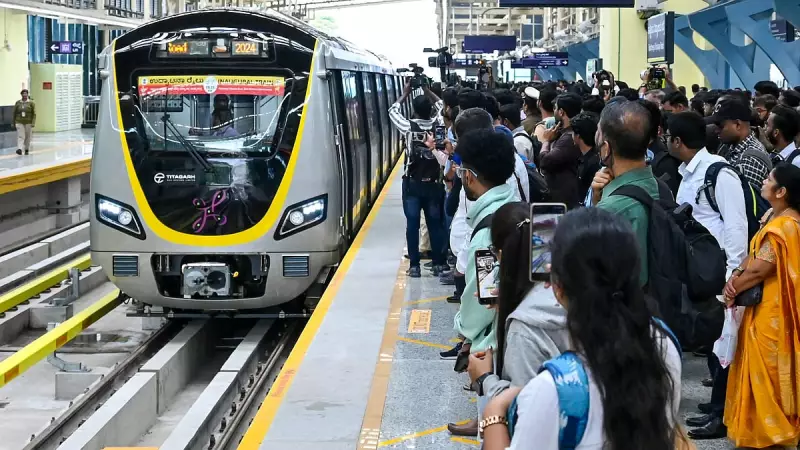
Commuters relying on Bengaluru's Namma Metro faced significant disruptions during the Thursday morning rush hour as a technical snag brought services on the crucial Yellow Line to a grinding halt. The incident occurred around 8:30 AM, creating ripple effects across the metro network and leaving hundreds of passengers stranded at stations.
Morning Commute Thrown Into Chaos
The Bangalore Metro Rail Corporation Limited (BMRCL) confirmed that a technical malfunction was detected on the Yellow Line, which connects Nagasandra to RV Road through the city center. The specific nature of the technical issue wasn't immediately disclosed, but it was severe enough to require immediate attention from engineering teams.
Services were temporarily suspended between key stations as technicians rushed to diagnose and fix the problem. The disruption couldn't have come at a worse time for Bengaluru's workforce, with the 8:30 AM to 9:30 AM window representing one of the busiest periods for the city's public transportation system.
BMRCL's Response and Passenger Advisory
BMRCL officials acted swiftly to address the situation and keep passengers informed. The corporation used its official communication channels to alert commuters about the developing situation. In an official statement, BMRCL announced: "Normal services on the Yellow Line have been restored after our technical team resolved the snag."
While the exact duration of the disruption wasn't specified in initial reports, the incident caused substantial delays that affected the schedules of countless daily commuters. The corporation acknowledged the inconvenience caused to passengers and appreciated their patience during the technical difficulties.
Recurring Challenges for Bengaluru's Lifeline
This incident highlights the growing pressure on Bengaluru's metro system, which has become an essential transportation artery for India's technology capital. The Yellow Line, in particular, serves as a critical corridor connecting residential areas in the northwest with major commercial hubs in the south.
Technical snags, while infrequent, can have outsized impacts on the city's mobility, especially during peak hours when the metro system operates at near-full capacity. The incident raises questions about maintenance schedules and the need for redundant systems to minimize service disruptions.
As Bengaluru continues to expand its metro network with additional lines and extensions, ensuring reliable service becomes increasingly important for the city's economic productivity and quality of life. Thursday's disruption serves as a reminder of the vulnerability of urban mass transit systems and the importance of robust contingency planning.






